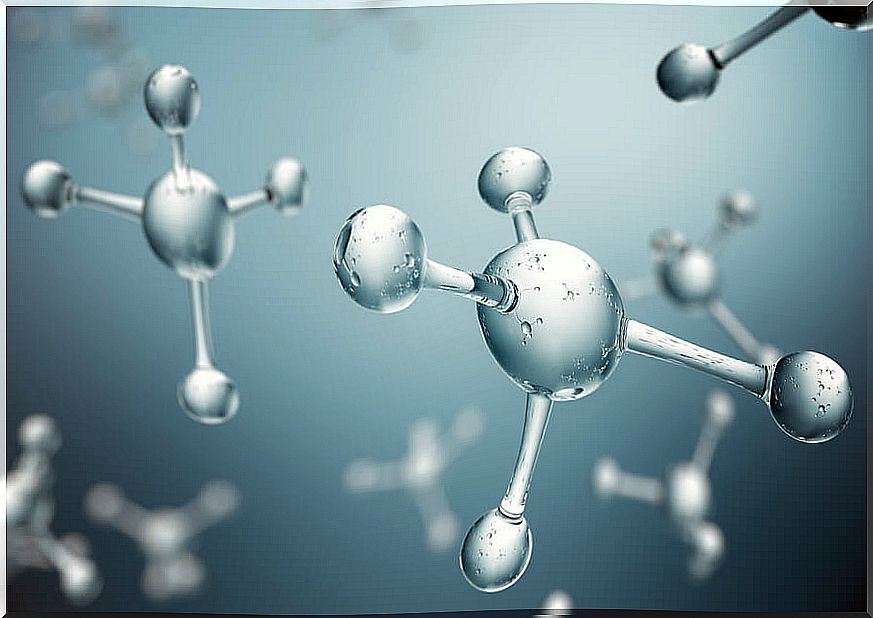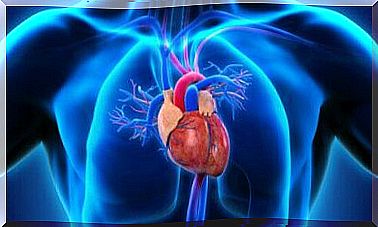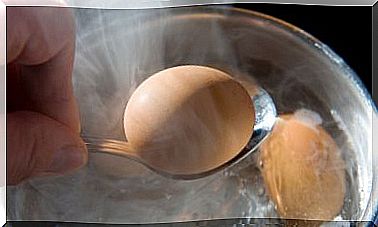Collagen Vascular Disease: Symptoms And Treatment
“Collagen vascular disease” is a concept coined many years ago to refer to a group of disorders that degenerate collagen fibers. Do you want to know its symptoms and treatment? Keep reading!

There are various diseases capable of affecting one’s own tissues, which can be autoimmune, hereditary, or a combination of both. These types of pathologies are capable of attacking any organ of the body and affecting its proper functioning. Collagen vascular disease falls within this classification.
Connective tissue is the one in charge of supporting and interconnecting all the structures of the human body. In this way, its main function is to keep the bones, ligaments and muscles together. The pathologies in question can affect all of these structures, as well as blood vessels, joints, and skin.
Most of the conditions that make up collagen vascular disease have an autoimmune origin. In this sense, the defense system will work incorrectly attacking the own organs. Treatment can be complex and can actually lead to immunosuppression in patients.
What is collagen vascular disease?
Collagen vascular disease is a term used to refer to a group of pathologies that affect the connective tissue of the human body. This is a terminology coined many years ago that encompasses a diverse group of disorders, both inherited and autoimmune.
The use of this term decreased drastically over the years. In fact, it is very little used today. Today there are precise names for each of the pathologies, among which the following stand out:
- Systemic lupus erythematosus.
- Scleroderma
- Rheumatoid arthritis.
- Temporal arteritis.
- Imperfect osteogenesis.
All were grouped under this term, since in them there is a fibrinoid degeneration of collagen fibers. However, it was discovered that this degeneration was secondary and non-specific, so it was decided to give each one a precise name.

What are your causes?
As already mentioned, collagen vascular disease can be both hereditary and autoimmune. The hereditary ones appear by an alteration in the genes, transmitted from parents to children. For its part, the precise cause of autoimmune diseases is still unknown.
These types of pathologies are more frequent in women than in men. In fact, studies show that for every man with rheumatoid arthritis, there are 3 women diagnosed with the same disease. In addition, they usually appear between 30 and 40 years.
Symptoms of collagen vascular disease
All pathologies grouped under this name will have their own characteristic symptomatology. However, they have an inflammatory process in collagen fibers and nearby structures. In this way, people who suffer from them may have pain, stiffness, muscle weakness and an increase in the temperature of the affected areas.
Symptoms of systemic lupus erythematosus (SLE)
SLE is a systemic disease characterized by affecting multiple organs at the same time, so its symptoms can vary from person to person. One of the most characteristic symptoms is erythema in butterfly wings, which is a redness on the skin of the nose and cheekbones.
For their part, patients may also report any of the following signs:
- Fever of unknown origin.
- Joint and muscle pain.
- Red spots on the skin.
- Difficulty and pain in breathing.
- Hair loss or alopecia.
- Sensitivity to the sun.
Scleroderma symptoms
Scleroderma is a pathology that causes an abnormal growth of connective tissue, which hardens and increases its thickness. These alterations will cause inflammation and pain in the muscles and joints.
People with scleroderma may also report any of the following symptoms:
- Calcium deposit in connective tissues.
- Presence of Raynaud’s phenomenon.
- Thickening of the skin of the fingers.
- Diarrhea.
- Difficulty breathing.
- Inflammation of the esophagus
Rheumatoid arthritis (RA) symptoms
RA is one of the best known collagen vascular diseases, with joint pain being its main symptom. People report pain and difficulty moving one or more joints. In addition, morning joint stiffness of more than one hour is also common.
Patients may have any of the following symptoms:
- Redness and increased temperature in the affected joint.
- Finger deformity.
- Inflammation in the joints.
- Decreased range of motion.
Symptoms of temporal arteritis
The last collagen vascular disease that we will talk about is temporal arteritis, which is an inflammation of the layer that covers the arteries. This pathology can affect multiple vessels, however, it is more common in the temples, so one of its characteristic symptoms is headache and tenderness in the area.
For their part, people with temporal arteritis may also refer the following symptoms:
- Sensitivity of the scalp.
- Jaw pain
- Vision problems
- Fever and fatigue of unknown origin.
Diagnosis
The diagnosis of all these diseases is based on the clinic that the patient presents. In this sense, the specialist should inquire about all the characteristics of the symptoms presented. For its part, it is also necessary to perform a correct physical examination in order to find any sign of interest.
The doctor may also order blood tests. In this way, the erythrocyte sedimentation measurement may be prescribed, which will be elevated in the presence of an inflammatory process.
On the other hand, C-reactive protein is also an important marker of inflammation, so its analysis should not be omitted. This test indicates the concentration of pro-inflammatory proteins synthesized by the liver.
Treatment of collagen vascular disease

In general terms, these pathologies present with inflammation, so the treatment of all of them will be aimed at reducing the impact of these conditions. First, the administration of corticosteroids is necessary, which are a class of drugs that help regulate the immune system.
The consumption of these drugs should be done under strict medical supervision, as a result of their ability to develop tolerance and severe side effects.
Immunosuppressants also help control the immune system by decreasing its activity. These compounds will minimize the attack on the tissues by the white blood cells, however, a depressed immune system can promote infections.
Physical therapy is very useful in patients with any of the previously mentioned pathologies. All of them are capable of causing damage to the joints, so physiotherapy helps reduce the impact on mobility.
Patient prognosis
The prognosis and life expectancy of patients diagnosed with collagen vascular disease is good in most cases. However, this can vary from person to person, depending on the organs that are affected and the progress at the time of diagnosis.
It is important to remember that all these pathologies are chronic, so there is no cure for them. However, it is possible to reduce the impact and improve quality of life with appropriate treatments.









